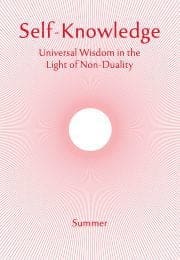Chuang Tzu
An article on the Taoist philosopher Chuang Tzu, by Hari Prasad Shastri.
The sixth century BCE was marked by an unprecedented upheaval in the world of philosophy. Discarding the old and no longer suitable authoritarianism of the ancient writers, humanity made reason its sole guide and entered the realm of investigation with an open mind. It has been said that Socrates ‘brought down philosophy from the clouds to the earth,’ meaning that he freed the human mind from the fetters of orthodoxy and authority, ushering in a new era of scientific investigation. While Socrates was exposing the grandeur of morality and the beauties of justice and truth, the Buddha was inaugurating in India an era of revolt against the meaningless rites of the Vedas, and exposing the mischievousness of the caste system, preaching equality, mercy, benevolence and freedom of thought. In renouncing a position of the highest opulence for that of abject poverty, he was demonstrating the supreme value of love of truth and the unity of life.
At this time, China was in a state of disintegration and degeneracy. The lofty idealism of Yao and Shun, and the spirit of self-sacrifice of Yu the Great, had been completely forgotten. Dissensions, unbridled passions and ignorance ruled the hearts of the people. It was at this time that a great sage appeared in China who put morality above all worldly considerations, and enjoined the need for gentlemanly conduct under all circumstances. Such was Confucius. Observing reticence on the disputed questions of life after death and the mysteries of the human soul, he taught the simple principles of considerateness and propriety, filial piety and devotion to duty.‘ If our parents tell us to do what is obviously wrong, should we do it?’ asks a disciple. The sage bursts out: ‘What did you say? What did you say? Even if an august Prince commands his ministers to do what is not right, they must not obey him!’
While the sage of Lu was thus teaching politics and ethics, another great philosopher, Li or Lao Tzu, was teaching the philosophy of spiritual well-being. He believed in quietude, peace, retirement and absolute inaction, and laughed at the teacher of music and rites, Confucius. It is said that he was keeper of the Imperial archives at Loyang, and on record is an account of the interview Confucius had with him there, in the course of which the old philosopher smiled at the ignorance of the young Confucius and advised him to study Tao to realise the Truth. Apparently Confucius was deeply impressed by the wisdom of Lao Tzu, for on a subsequent occasion, though fundamentally in disagreement with him, Confucius compared himself to him in his fondness for antiquity and in disclaiming any originality or innovation in his teachings. In one of the ancient writings, Confucius is quoted as saying: ‘Transmitting but not inventing, believing in and loving antiquity, I venture to compare myself with Lao Ping.’ Lao is no other than Lao Tzu.
Lao Tzu loved obscurity. He lived and taught more by example than by precept, and after giving to the world his book, the Tao Te Ching, containing some five thousand words, he mysteriously disappeared. He entered the high valleys and did not return. His teachings left a mark on the thought of the China of his day, provoking speculation on mysticism and life, but it was left to Chuang Tzu, who came over two hundred years after him, to propagate the teachings of the old philosopher in his brilliant and dashing style, obtaining for them a permanent position in the history of Chinese philosophy.
Subscribe or enrol for free guest access to read all of this article and Self-Knowledge online.
Already subscribed or enrolled? Log in:


